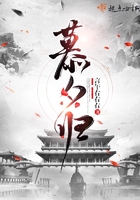Paradoxical, but true. First, you must dismiss from your minds the too common notion that there is now, in England, a governing Norman aristocracy, or that there has been one, at least since the year 1215, when Magna Charta was won from the Norman John by Normans and by English alike. For the first victors at Hastings, like the first conquistadores in America, perished, as the monk chronicles point out, rapidly by their own crimes; and very few of our nobility can trace their names back to the authentic Battle Abbey roll. The great majority of the peers have sprung from, and all have intermarried with, the Commons; and the peerage has been from the first, and has become more and more as centuries have rolled on, the prize of success in life.
The cause is plain. The conquest of England by the Normans was not one of those conquests of a savage by a civilised race, or of a cowardly race by a brave race, which results in the slavery of the conquered, and leaves the gulf of caste between two races--master and slave. That was the case in France, and resulted, after centuries of oppression, in the great and dreadful revolution of 1793, which convulsed not only France but the whole civilised world.
But caste, thank God, has never existed in England, since at least the first generation after the Norman conquest.
The vast majority, all but the whole population of England, have been always free; and free, as they are not where caste exists to change their occupations. They could intermarry, if they were able men, into the ranks above them; as they could sink, if they were unable men, into the ranks below them. Any man acquainted with the origin of our English surnames may verify this fact for himself, by looking at the names of a single parish or a single street of shops.
There, jumbled together, he will find names marking the noblest Saxon or Angle blood--Kenward or Kenric, Osgood or Osborne, side by side with Cordery or Banister--now names of farmers in my own parish--or other Norman-French names which may be, like those two last, in Battle Abbey roll--and side by side the almost ubiquitous Brown, whose ancestor was probably some Danish or Norwegian house-carle, proud of his name Biorn the Bear, and the ubiquitous Smith or Smythe, the Smiter, whose forefather, whether he be now peasant or peer, assuredly handled the tongs and hammer at his own forge. This holds true equally in New England and in Old. When I search through (as I delight to do) your New England surnames, I find the same jumble of names--West Saxon, Angle, Danish, Norman, and French-Norman likewise, many of primaeval and heathen antiquity, many of high nobility, all worked together, as at home, to form the Free Commoners of England.
If any should wish to know more on this curious and important subject, let me recommend them to study Ferguson's "Teutonic Name System," a book from which you will discover that some of our quaintest, and seemingly most plebeian surnames--many surnames, too, which are extinct in England, but remain in America--are really corruptions of good old Teutonic names, which our ancestors may have carried in the German Forest, before an Englishman set foot on British soil; from which he will rise with the comfortable feeling that we English-speaking men, from the highest to the lowest, are literally kinsmen. Nay, so utterly made up now is the old blood-feud between Norseman and Englishman, between the descendants of those who conquered and those who were conquered, that in the children of our Prince of Wales, after 800 years, the blood of William of Normandy is mingled with the blood of the very Harold who fell at Hastings. And so, by the bitter woes which followed the Norman conquest was the whole population, Dane, Angle, and Saxon, earl and churl, freeman and slave, crushed and welded together into one homogeneous mass, made just and merciful towards each other by the most wholesome of all teachings, a community of suffering; and if they had been, as I fear they were, a lazy and a sensual people, were taught That life is not as idle ore, But heated hot with burning fears, And bathed in baths of hissing tears, And battered with the strokes of doom To shape and use.
But how did these wild Vikings become Christian men? It is a long story. So stanch a race was sure to be converted only very slowly.














